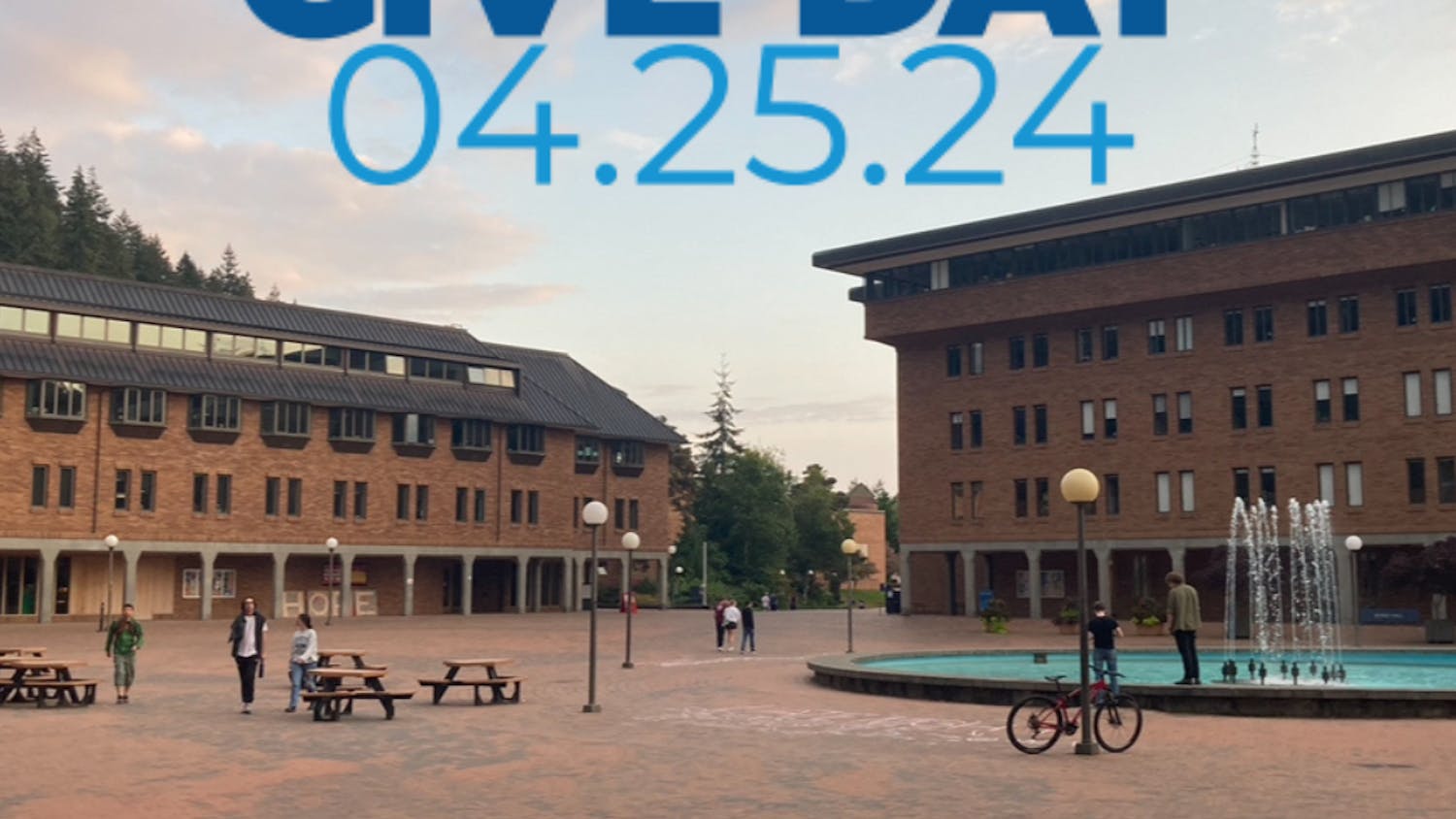Olivia Hicks, a former WWU student, browses past Klipsun Magazines at the 50th anniversary of Klipsun on Saturday, Oct. 19. // Photo by Grady Haskell By Aidan Weiss Klipsun’s 50th anniversary spawned a unique opportunity for former and current staff to discuss their respective time as employees, what their generation stood for and what types of social issues they tackled with the magazine. The diverse mix of past and present staff members shared stories, lessons and laughs while looking over Klipsun issues from a number of generations during a celebration of Klipsun’s 50th birthday on Saturday, Oct. 19. Questen Inghram, editor-in-chief in Summer 2019 and leader behind the 50th anniversary issue, had the chance to speak on the anniversary issue, going into detail about how Klipsun started off as a yearbook in 1913, and didn’t change until the late 1960’s. “I think it is interesting how it’s evolved, just looking at the covers from then to now really shows you, and that’s something that we really wanted to explore.” Inghram said. “We made the cover and the design a homage to the very first issue.” He also went into the issue’s theme: indignation, a word meaning anger at injustice that sparks action. He said during Klipsun’s conception, in the height of the Vietnam war, this was a word that defined the feelings of many people on campus and across the nation. As such, Vol.1 of Klipsun’s 50th issue pursued stories with such a theme. Journalism professor Peggy Watt said the 50th anniversary staff noticed how similar the topic in older issues were to modern ones. “Anti-war efforts, housing problems, challenges for students juggling jobs and classes, weird politics.” Watt said. “Vice President Spiro Agnew was bad-mouthing the media. Ethnic students at Western were asking for greater awareness of social issues and their concerns.” Comparatively, current Klipsun Editor-In-Chief Ray Garcia discussed working with marginalized communities on campus. “My personal experience as both an editor for the Western Front and Klipsun is that there are a lot of marginalized communities on this campus that aren’t given the same platform or opportunity to speak as others have,” Garcia said. “Even when these groups are provided coverage on issues happening within their own communities, they’re mostly misquoted and misrepresented.” Garcia hopes to face these issues head-on. He wants his staff to have the compassion and empathy to slow down the reporting process. A number of staff members, past and present, discussed what they thought about Klipsun’s role on campus. “Klipsun’s primary purpose is to provide students with the educational experience of putting out a real magazine,” Bill Dietrich, editor in 1973, said. “It has a long history of editors selecting issues of real relevance to build a quarter around. This exposes students not only to writing, editing, photography, and design challenges, but to critical thinking about what society is grappling with.” Former editor Rudy Yuly, who was on staff from 1979 to 1980, discussed Klipsun’s signature long-form approach to storytelling. He said in his time with the publication, they were trying to cover more in-depth and varied stories than would be seen in The Western Front. He went on to say how similar Klipsun is now to it’s past self, a statement that is reflected by a number of other editor responses to the same question. Inghram said he likes Klipsun because it doesn’t have a narrow focus and it fills the gaps between other student publications. “It’s not the Front, it’s not the Planet.” Inghram said. “It is fluid and that’s why I think it is such an important publication because it does cover things that wouldn't be talked about anywhere else.” He went on to say how the magazine is a unique opportunity for students to apply all the different skills that they’ve learned and tell stories in a way that represents the community and what it values, while exploring issues that are important to people. With that in mind, Garcia went into detail about the upcoming issue. “I think in our current sort of socio-political climate, there are varying tensions between varying communities, and there are a lot of different identities on this campus,” Garcia said. “I think one of the main sort of issues that our editorial staff and our writers have been addressing in this upcoming edition of Klipsun is the fact that regardless of where you’ve come from and regardless of what you’ve gone through, it’s sort of identifying that all of us can overcome adversity and we can transcend our own limitations.” Klipsun has faced controversy. Editors of past issues spoke of times when their stories were accompanied by backlash. Mike Vouri, 1978 editor, said there was an instance where one group of people was so angry with one publication that they followed the staff around campus while they were distributing the issue, and collected each hand out to throw in the garbage. Yuly said he faced backlash from the dean of Fairhaven, at the time, for writing a story about Fairhaven being in danger of losing its accreditation. The dean was so furious with his story, he was forced to defend the article to the dean, his advisor and the head of the journalism department. “Fortunately, I could provide full documentation (and recordings) of everything I wrote about.” she said. “I was really glad I'd kept good notes and recorded my interviews—thanks to my great professors, who taught me and all my fellow students really well.” You can find copies of the 50th anniversary issue at various newsstand posts around campus and online.





